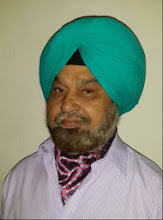(This Posting was First Mede by Me on www.InformedCitizensForum.com on 26 Mar 2010)
There is a ‘rooted’ tendency amongst Us to narrow Civil-Military Relations to IAS-Military Top Brass. In wider sense it in fact relates to who governs the Country, Civil or Military leadership?
Civil is all encompassing - politicians, civil bureaucracy including allied civil services, police, State machinery, civil offices providing services like supplies, power, water, teles, transportation, roads, etc. Military and its personnel deal at various levels of ‘civil governance’ in official and personal capacities. Any aberrations to military personnel while on duty, off duty, or at home leaves them frustrated. Military has expectations to be governed / handled diligently and in an orderly fashion. It is here that a soldier ‘grumbles’ when he is ‘towed’ to follow ethos alien to him.
First damage to civil-military relation stems when a soldier is handled shabbily, dishonestly, or indifferently in the Civil. And this could multiply manifold as he moves through his ‘life cycle’. In his frustration, he then uses ‘force’, the only ‘expertise’ developed in him to reach his objective, at least temporarily, willing to face its consequences subsequently.
Any nation has to be sensitive not to bruise soldiers’ pride in day-to-day interactions. Self-Pride, Self-Respect, Self-Reliance, High-Class Motivation, Professionalism, Ability to Lead by Example, etc are his inherent strengths. Any act that tends to lower it is damaging to the Forces, and Nation as a whole. Anyone including Armed Forces Leadership hurting/undermining these basic traits in any manner is doing disservice to the Nation as it may result in ‘mass grouse’, sometimes difficult to be handled by leadership. That’s why the Armed Forces handle cases of bad management, indiscipline or corruption strictly.
‘All Civil Institutions’ need to fully appreciate it in a democracy like India, where ‘ethos & personal examples’ tend to become casualty.
A Soldier is a Class by Itself and Should be treated as Such. He is then ‘fit’ to deliver optimally ensuring Your Freedom.
We are an established democracy now, it is time that we talked and discussed Civil-Military Relations openly, and organised ourselves on 'Systems Approach' both in thinking and action.
Sukhwindar
Svipja Technologies
[It is a stub, could be expanded to a full Article by some Researcher(s)]





